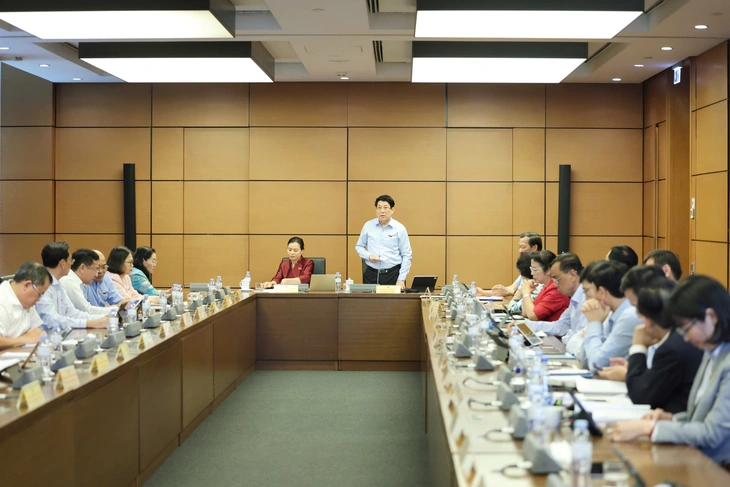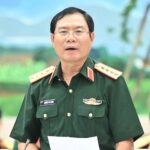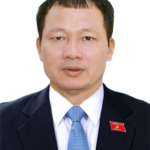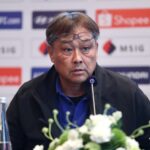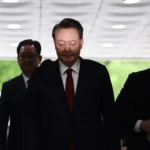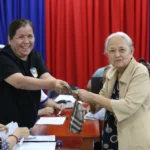Leaders and managers don’t necessarily have to be the best in their field, but they must know how to utilize and manage those who are better.
On the morning of October 22, attended and spoke at the group session of Group 2 – Ho Chi Minh City National Assembly Delegation.
Law amendments must meet requirements for streamlined apparatus
Commenting on the draft, the State President stated that the amendment objectives must meet the requirements for a streamlined, effective, and efficient apparatus and the urban governance model.
One of the core issues is improving the quality of the civil servant workforce and creating connectivity between the public and private sectors, particularly in healthcare, education, and media.
“The law must clearly define: what the state must fully subsidize, what the state partially supports, and what can be left to autonomous units,” the State President emphasized.
Citing experience from working in the military, the State President shared the process of reorganizing public service units such as hospitals, convalescent centers, and military television stations.
He stated that a fully market-based autonomous mechanism cannot be applied to units with political missions.
“When I was still working in the military, during the implementation of Central Resolutions 18 and 19 on reorganizing the apparatus and public service units, there were also requirements for military hospitals, convalescent centers, and television stations to be autonomous. But I believe we must determine the purpose of existence for these units,” he analyzed.
The State President explained that military hospitals were established to serve national defense missions. During emergencies, they can immediately mobilize to become field medical stations.
In peacetime, they utilize their functions for medical examination and treatment, maintain professional skills, ensure livelihoods, and serve society. If they were fully autonomous under market mechanisms, they couldn’t fulfill their political missions.
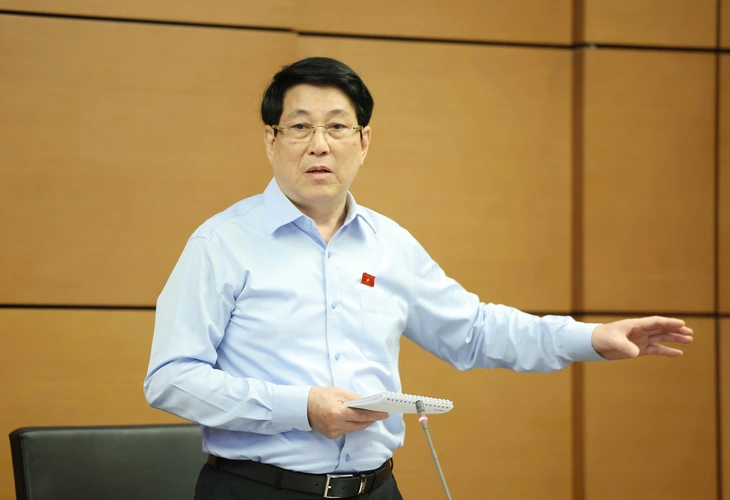
According to him, the chosen solution was to maintain the existing model, only utilizing functions to both complete political missions and serve society while ensuring livelihoods for officials and civil servants. The Politburo has agreed to use defense land for key national projects.
Concluding the discussion, the State President suggested reviewing standards and methods for training and developing officials.
“For leadership and management officials, they don’t necessarily have to be the best in their field, but they must know how to utilize and manage people who are better than them. Meanwhile, educators and scientists must be truly specialized. Vocational training must be linked to labor market needs, training what society needs, not just what we have,” he emphasized.
Clearly define minimum criteria
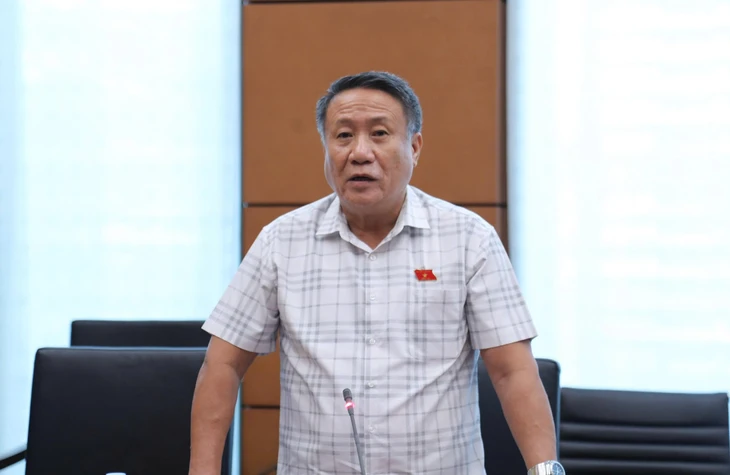
Commenting at the Quang Tri group, National Assembly delegate Ha Sy Dong assessed that this amendment of the Civil Servant Law demonstrates the spirit of encouraging innovation and creativity by having mechanisms to exclude, exempt, or reduce responsibility for collectives and individuals who dare to think and act for the common good.
The new regulations on evaluating and classifying civil servants through quantitative, multi-dimensional approaches, linking results with income and personnel; requiring evaluation data to be updated to the centralized management system, according to Mr. Dong, will help enhance transparency and encourage innovation.
The draft amended Civil Servant Law assigns the Government to specify details on civil servant evaluation.
But Mr. Dong suggested the draft law should clearly state minimum mandatory criteria, such as: output results, task completion level, citizen satisfaction index, digital transformation level, and financial-human resource management efficiency.
National Assembly delegate Ha Sy Dong also requested the Government to soon issue a new salary framework; specify amplitude, resources, and implementation roadmap.
<p

